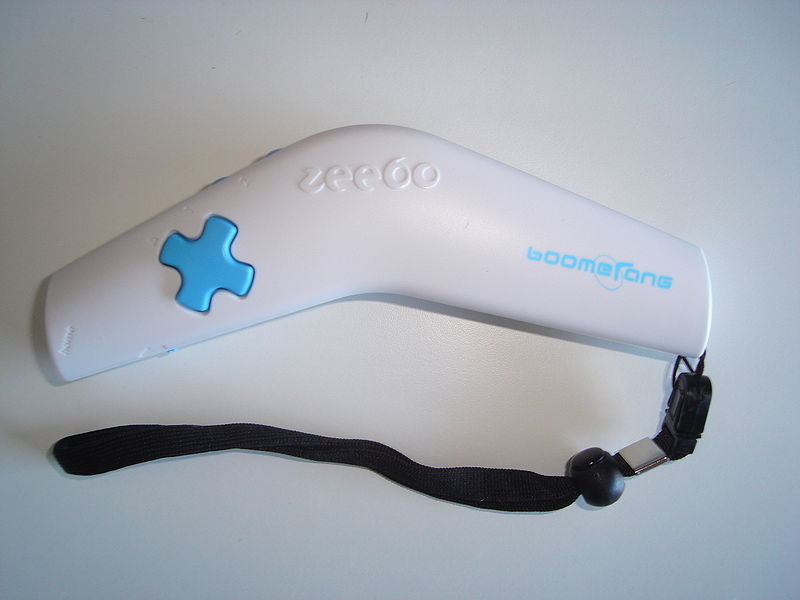Mike Yuen on Zeebo - the fourth home console
800 million gamers waiting to get connected through the Zeebo

Digital distribution is all well and good, but your games platform - whatever it might be - needs to be connected to the internet or the whole system falls apart. For many countries, this makes machines like the Xbox 360, PlayStation 3, Nintendo DS and even an iPod touch a lot less enticing.
So it's here that the Zeebo is aimed. This is essentially a powerful smartphone inside a living room console, with a contract and fee-free 3G connection to distribute its games.
It's an inspired notion that was remarkably easy and inexpensive to put into production, and inherently combats piracy in emerging markets where developers and publishers struggle to make much at all.
Zeebo's senior vice president of services and content, Mike Yuen, stopped by to tell us all about the Zeebo, from concept to launch, and why this could be a system that competes with the super-consoles without ever stepping foot in the West.
Pocket Gamer: To begin, can you tell us how the concept for the Zeebo came about, and what it's overall goal is?Mike Yuen: I was working at Qualcomm in San Diego California and had a vision for this product and service, and independently in Sao Paulo Brazil, Reinaldo Normand (the founder of the company) also had a similar vision. As fate would have it, we eventually connected when Reinaldo came knocking at the door of Qualcomm looking for both technology (in the form of Qualcomm's chipsets and also BREW as a secure content delivery and monetization system) and venture funding.
Myself and Dave Durnil (the internal project engineer for this concept in Qualcomm) then ended up working closely with the company through its formation and initial funding by Qualcomm back in February 2008 up to the present day. I decided to pursue the dream and joined full time this past August to head up their content and services area.
Like all good ideas it's pretty rare only one person in the entire world has an idea all alone, particularly if it's business oriented. So it's fair to say that Zeebo was actually the result of two people a world apart who came together to realise a shared dream of bringing interactive fun and learning to the next billion people in emerging markets of the world.
These are families who have yet to be exposed to ANY form of digital entertainment in the home and are immersed in their own local languages and cultures. And because they are just now joining the middle class, they'd like a really cool product that is affordable in the broadest sense (hardware, software content, electricity consumption, etc.), something that current generation game console like the Wii, Xbox 360, and PS3 just don't provide.

Tectoy's Boomerang controller, which uses an accelerometer for gesture controls.
Zeebo also represents a much broader vision of more than just gaming. We enable families with fun and opportunity and connect them to the world because of the learning and internet capability of the device.
Through wireless 3G digital distribution we also provide a vehicle for content providers to legally make money and not get pirated. But more importantly because there is no packaging, no distribution channel and very little marketing costs when digitally advertising and delivering content on the Zeebo, the return on investment economics are totally different.
For tens of thousands of dollars, locally produced, culturally relevant content can be offered on the Zeebo and the publisher and developer makes money - something impossible to do on existing console products which are burdened with huge production and marketing costs for the channel, and everything ends up getting pirated anyway.
Zeebo upends the traditional publisher/distribution channel economics and creates a whole new industry of local content.
The combination of 3G connectivity and digital game distribution built into a living room console is quite unique. Can you tell us the thinking behind cellular connectivity, rather than the typical internet connection most consoles use?In the majority of emerging markets, wired broadband into the home is simply not commonplace and may not be for many years, if perhaps ever. So yes, most installed consoles today have some form of wired broadband, but the vast majority of the 800 million emerging middle class have virtually no access to wired broadband.
In many of these developing countries 3G wireless broadband is more prevalent and is widely available, and it's likely wireless coverage, including someday even faster 4G technologies, will be the dominant network connection for devices and people instead of a wired line.
Adding connectivity to a device transforms that device from a static piece of equipment to one that's dynamic and alive due to the fact that the applications and services as well as even the UI can be updated and personalised. And adding wireless connectivity is even more powerful because you're not constrained by wires.
Couple this with the fact that with Zeebo we're just using standard cell phone chips so we don't have to create incredibly expensive custom hardware. We ride on the volume and cost curve of the most mass produced silicon in the world - cell phone chips - hundreds of millions of which are produced every year.
What was the most challenging aspect of the Zeebo's design?.jpg) Not to downplay all of the efforts and long hours that went into creating Zeebo, but honestly, the actual design wasn't too difficult. In roughly 16 months we went from initial funding as a startup and a bunch of Powerpoints (or to be more accurate Keynote, since we're a Mac house) to finished commercial product on shelves in Rio de Janeiro.
Not to downplay all of the efforts and long hours that went into creating Zeebo, but honestly, the actual design wasn't too difficult. In roughly 16 months we went from initial funding as a startup and a bunch of Powerpoints (or to be more accurate Keynote, since we're a Mac house) to finished commercial product on shelves in Rio de Janeiro.
By any measure I have to say that's pretty fast. We in effect created a data-only cell phone device and billing system, except it's intended for the home living room.
Also, by leveraging technology like BREW we didn't have to create our own delivery system, SDK, tools, etc. One way to look at Zeebo is we're basically an operator with a single phone.
But, again, that phone just happens to look like a nice piece of consumer electronics that sits next to a TV. However, I think for Zeebo publishers and developers they have to think differently about how best to innovate and create the highest quality titles out of what is in effect a smartphone chipset - although these smart phone chipsets are getting more and more advanced and powerful with each generation.
Also, I think folks should really think twice about just assuming we're only offering cell phone games. We aren't.
While the technology is cell phone-based, we are in fact offering a home experience appropriate for the consumer in these emerging markets coupled with a Kindle-like model to make the purchasing of the content simple and seamless.
What we lose in not having the most bleeding edge graphics and audio performance we make up for in enabling a huge new market with zero piracy and a mechanism for publishers and developers to make money.
Thanks very much to Mike for taking the time to chat with us while the Zeebo was being released in Mexico - a busy time for all concerned. Catch part 2 of our interview with him tomorrow.